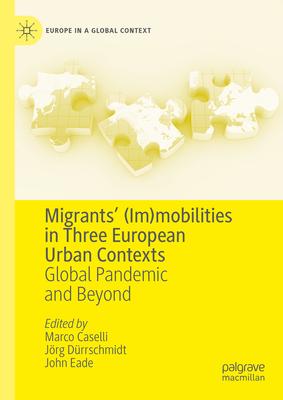This book analyses the impact of the coronavirus pandemic on three ethnic minorities in three European cities: Bangladeshi in London, Turks in Stuttgart and Peruvians in Milan. Considerable debate has emerged during the pandemic concerning its impact on minorities, and although considerable quantitative data has been generated by epidemiologists, qualitative studies also have great relevance, socially and culturally as well as institutionally. While in normal circumstances the position of migrant communities is associated with unequal access to scarce resources such as wealth, power and social prestige, the coronavirus pandemic shifted the focus to more specific variables: living in segmented or overcrowded conditions, working in jobs with higher risk exposure, difficulties with online schooling, and lack of access to health care and information.
The book will therefore be of interest to researchers and students of sociology, anthropology, global studies, migration and urban studies.

 看圖書介紹
看圖書介紹










